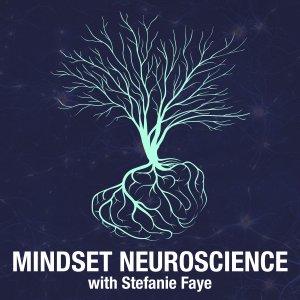Mindset Neuroscience Podcast

Season 1 Episode 12 – “Relational Minds”
“What matters is not how things are, but how they interact.“
– Carlo Rovelli, theoretical physicist, in his book, Reality is Not What It Seems
Relationships are the key to building our most powerful mind.
Our relationships with others build up beliefs, ‘cellular memory’, and neural networks that can help our brains become their most ‘human’: adaptive, resilient, creative, brilliant.
When relationships are absent, neglectful or abusive, they can block block us from accessing brain circuitry that makes us most human.
In the final episode of Season 1, I re-cap the 5 key takeaways of the previous 11 episodes:
#1 Trust & authenticity first. I give you a ‘sneak preview’ of some of the topics I’m covering in season 2, such as ‘neural synchrony’ and how we can ‘be on the same wavelength -literally – with someone else
#2 Don’t just focus on the brain. “Peak experiences” enhance learning. I explain how.
#3 Be in a constant state of learning and leaving your comfort zone.
#4 Don’t get stuck on catchphrases. If you’re explaining how to ‘celebrate mistakes’, you need to experiment and become a beginner again to know how to authentically model this to others.
#5 Conditions and environment matter. I give you a tiny review of sound and acoustics, as well as play and other factors that lower defensiveness and boost openness to learning.
Pan, Y., Dikker, S., Goldstein, P., Zhu, Y., Yang, C., & Hu, Y. (under review). Instructor-learner brain coupling discriminates between instructional approaches and predicts learning. bioRxiv, 704239.
*Go to Suzanne Dikker’s site for incredible research and projects related to social neuroscience
The Power of Moments by Chip and Dan Heath
The Blue Zones of Happiness by Dan Buettner
Interactive Brains, Social Minds – Caroline Szymanski with the Max Planck Institute for Human Development






 Visit Podcast Website
Visit Podcast Website RSS Podcast Feed
RSS Podcast Feed Subscribe
Subscribe
 Add to MyCast
Add to MyCast